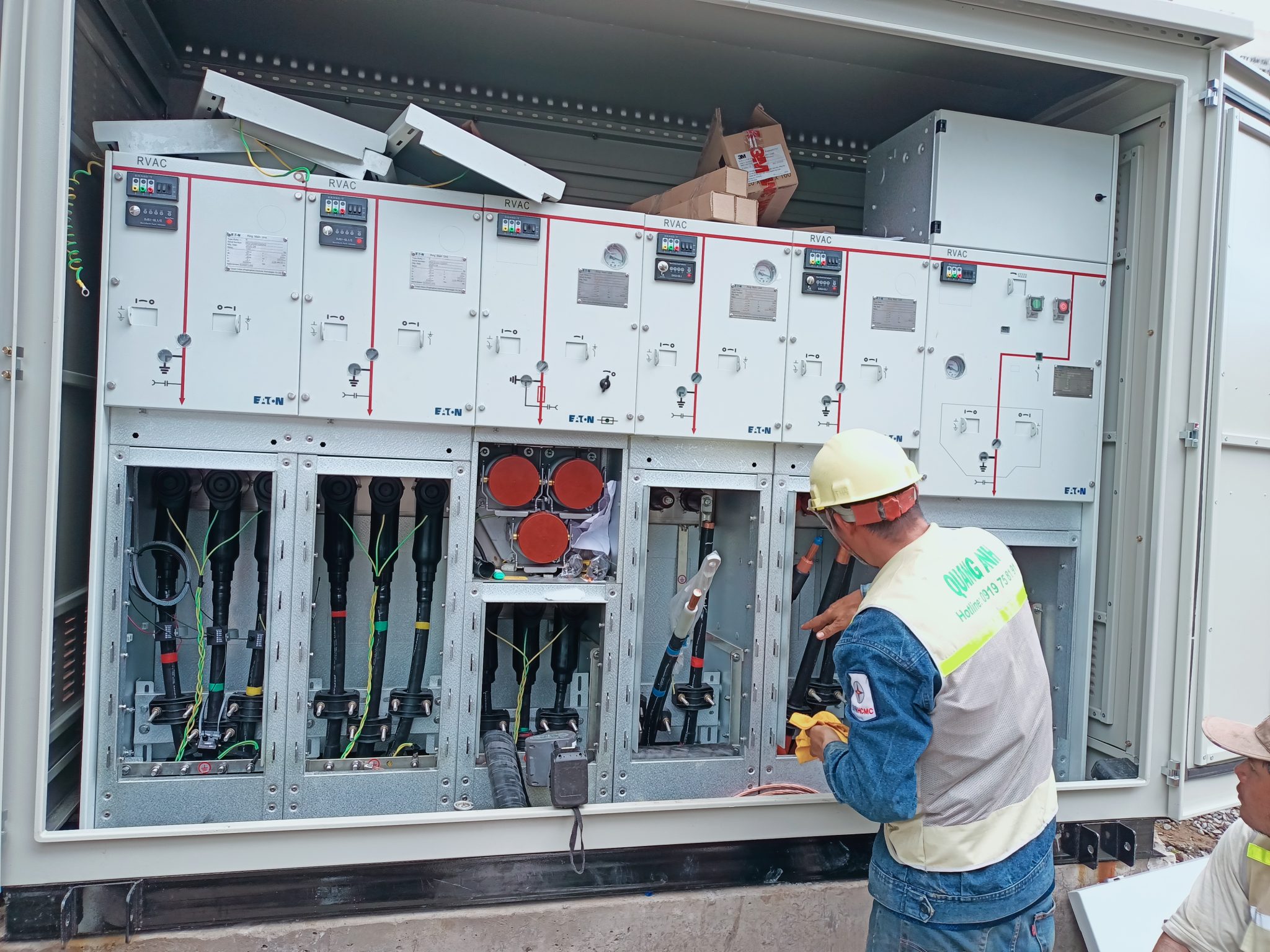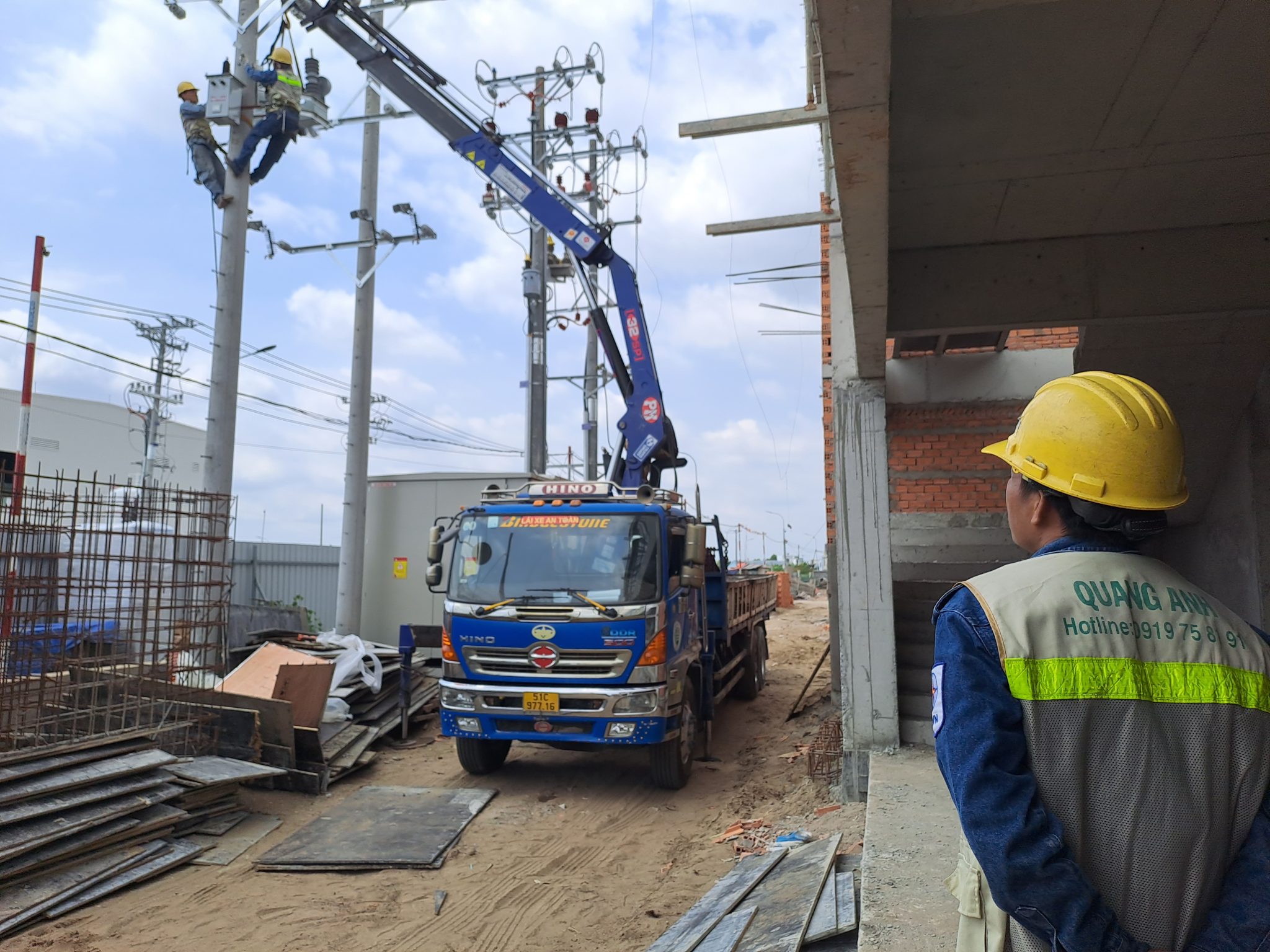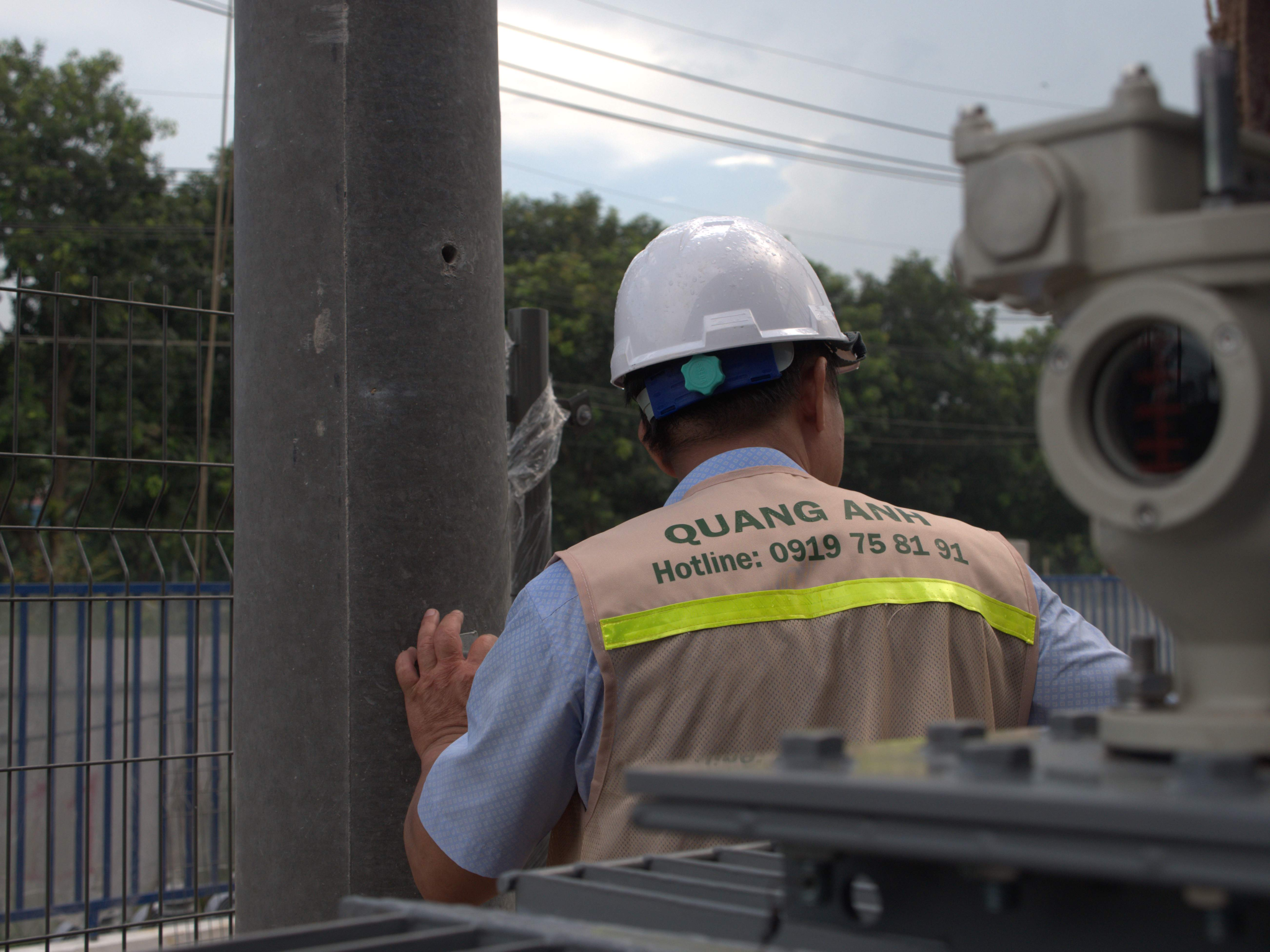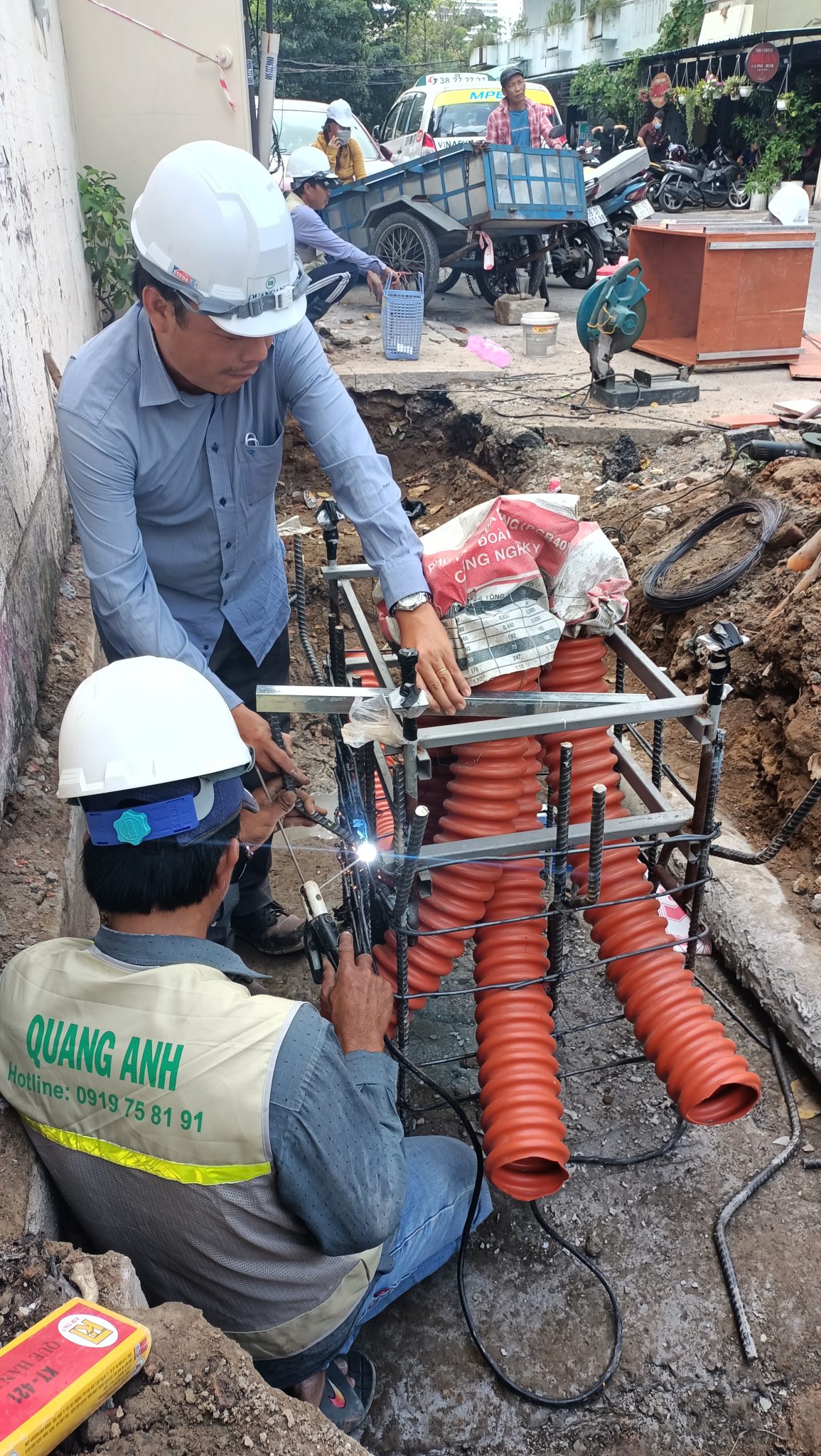News
Charging Station Contractor: Role, Services, and Technology Trends in Vietnam
Charging station contractor plays a crucial role in modernizing transportation infrastructure to meet the growing demand for electric vehicles in Vietnam. They offer services from consultation and surveying to warranty and maintenance of charging station systems.
Role of EV Charging Station Contractors
Contractors that install EV charging stations play an essential role in modernizing transportation infrastructure and meeting the growing demand for electric vehicles in Vietnam. They offer comprehensive services from consultation, surveying, designing, installing to warranty and maintenance of charging systems in locations such as office buildings, condos, shopping centers, gas stations, hospitals, schools. Their presence optimizes the use of land and facilities while promoting green and sustainable development trends.
Design and Site Survey
The contractor plays the initial and critical role in site surveying. This process includes determining suitable locations for the charging stations, based on the terrain conditions and external environment. Then, the overall system design follows, from the layout of the EV charging stations to the required auxiliary technical infrastructure.
- Site survey: Terrain, environment, and technical aspects.
- System design: Charging station layout planning.
Site Preparation
Before construction begins, charging station contractors must ensure careful preparation of the construction site. They are responsible for site clearance and preparation as well as providing sufficient equipment and necessary materials.
- Site clearance and preparation: Flatten and clean the area.
- Equipment provision: Ensure materials for construction.
Infrastructure Construction
Building the infrastructure is the next step, which includes constructing a solid foundation and an effective drainage system. Additionally, installing the electrical system is indispensable, requiring the use of equipment from renowned brands such as ABB, Mitsubishi, or Schneider to ensure quality and safety.
- Electrical system installation: Substations, electrical connections.
- Foundation construction: Robust drainage systems.
Charging Equipment Installation
The installation of the charging system is crucial to ensure efficiency and safety in use. Only equipment from reputable brands is chosen to meet high technical standards.
- Use of high-quality equipment: ABB, Mitsubishi, Schneider.
- Charging port installation: Efficient management system.
Maintenance and Service
Regular station maintenance is an indispensable part to ensure smooth, continuous operation. This not only ensures safety but also complies with fire safety regulations.
- Ensure continuous operation: Regular maintenance.
- Adhere to safety regulations: Fire safety protocols.
Partner Cooperation and Support
Close cooperation with property owners is necessary to avoid disrupting existing functionalities and help ensure installation success.
- Cooperation with property owners: Ensure no impact on parking lots.
- Partner support: Provide assistance during operation.
Ensure Technical Standards
Contractors must conduct strict checks to ensure the charging station meets international technical and safety standards. Green and sustainable development is the guiding spirit in these steps.
- Meet international standards: Technical and safety standards.
- Inspection and testing: Ensure effective station operation.

Service Quality and Safety Standards of Charging Station Contractors
Electric vehicle charging station contractors in Vietnam are committed to providing safety-standard services, using equipment from internationally renowned brands such as Schneider, ABB, Bosch, and Siemens. The goal is to ensure the highest quality, longevity, and safety for charging stations throughout their operation. Additionally, they offer long-term warranties, free surveys, regular maintenance, and optimal solution consultations for each project. These measures help preserve the investment value and provide the best experience for service users.
Charging station contractor service quality is a significant factor that businesses and contractors must focus on. In Vietnam, this is strictly regulated by national standards and technical regulations from government agencies.
-
Smart charging station management: Modern charging stations are integrated with smart management technology, allowing remote monitoring and control. This not only enhances service quality but also helps contractors quickly respond to incidents and preventive maintenance, ensuring uninterrupted service.
-
Charging station safety standards: Compliance with safety standards is mandatory to protect people, property, and the environment. Standards such as TCVN 13078-1:2020 and TCVN 13078-25:2023 regulate the technical aspects of EV charging, from electrical safety to explosion protection and defense against external factors like water and dust.
International standards such as ISO 15118 and IEC 62196 are also significant, providing the basis for a safe connection process between the vehicle and the charging station through the ‘Charging Connection Standard’. These regulations combine to offer a safe and efficient user experience.
- Service of charging station maintenance: An essential part of service quality is the regular maintenance plan. Contractors need to perform regular inspections and maintenance to keep the system functioning optimally. For service providers, well-trained personnel is necessary to ensure staff have adequate skills and knowledge in operation and troubleshooting.
Throughout operations, Electrical Protection Standards are strictly applied to prevent electrical incidents, such as overloading or short circuits, thereby guaranteeing absolute safety for users and vehicles.
These factors contribute to the reputation of charging station contractor service quality, enhancing customer trust and maintaining the investment value of a business.

EV Charging Station Installation Process
The EV charging station installation process in Vietnam typically includes the following main steps: Site survey, where contractors assess the terrain, electrical source, and location of the charging station. Next is system design, in which they plan optimal solutions for technical, aesthetic, and safety aspects. During construction, charging stations are installed and tested according to set standards to ensure quality before being officially put into use. Finally, contractors provide warranty and maintenance services, supporting trouble-shooting and regular maintenance to ensure long-term stable operation.
The installation process of EV Charging Stations is implemented through specific steps to achieve efficiency and ensure maximum safety for the system and users.
Assess Need and Requirements
-
Determine demand: The users of EV charging stations have diverse needs for electric vehicles. Accurately identifying the number and type of anticipated vehicles will help shape the energy needs and scale.
-
Site consideration: Finding an optimal location for the charging station is crucial to ensure convenience and safety. The site needs to be easily accessible to various electric vehicles and quickly connect to the electrical infrastructure.
Evaluate Electrical Infrastructure
-
Electrical system check: This process includes assessing the current capabilities of the electrical system at the proposed station site. This can prevent issues of overloading or lack of power.
-
Capacity analysis: Determine the necessary capacity of the EV Charging Station and check the system’s capability to meet it. This ensures the station functions efficiently without affecting other activities.
Design the Charging Station System
-
Select charging equipment: Decide on the type of charging port, AC or DC, as well as choose reputable brand equipment like ABB and Schneider, which directly affects the station’s operational capacity and durability.
-
Create connection models: Designing the network connectivity and distribution of power to charging components are key factors to optimize performance and provide high stability.
Construction and Installation
-
Implement according to design: Perform construction according to pre-established technical designs and standards. Ensure that every stage is precise and reasonable.
-
Inspection and testing: After installation is complete, conduct overall tests to confirm the system’s safety and stability before commissioning.
Maintenance and Operation
-
Regular maintenance: Conduct frequent inspections to ensure the EV Charging Station runs smoothly and avoids unexpected damages.
-
Operation and monitoring: Closely follow the station’s activity to detect and resolve unusual situations early. Monitoring enhances long-term system reliability.
Regulations and Standards
-
Compliance with regulations: All fire safety and environmental protection regulations must be strictly followed. This ensures not only system safety but also for users and the surrounding environment.
-
Technical standards: Employ advanced technical standards to guarantee quality, including safety as well as performance efficiency.
Fire Safety
- Power disconnection: Both automatic and manual power disconnection devices must be installed to protect the system from unwanted incidents.
The complete process of installing EV Charging Stations requires deep expertise in technical fields and meticulousness in each stage to ensure optimal safety and operational performance.

Technology Trends and Investment Solutions in Charging Station Installation
Technology Trends and Investment Solutions in Charging Station Installation
Current technology trends show that many contractors offer ‘zero-cost’ investment solutions for property owners, meaning they will cover all investment and installation costs and then share revenue with the owner. This promotes the nationwide expansion of the charging station network. Concurrently, fast charging technology, smart charging, and remote management systems are also being implemented intensely by contractors to meet the increasingly rich and diverse demand of customers. These solutions not only bring economic benefits but also contribute to the sustainable development of urban transportation infrastructure.
In the context of electric vehicle development, charging stations currently play a key role in clean energy transportation infrastructure. In Vietnam, high-capacity and multi-port charging stations are becoming increasingly common, with companies like VinFast deploying charging poles up to 360 kW, allowing multiple vehicles to use them simultaneously, optimizing space and reducing wait times. The fast-growing market for electric vehicle charging creates room for expanding charging station investments.
- Enhance capacity and number of charging ports: With more than 150,000 charging ports projected by 2025, Vietnam leads in public charging port density. Energy technology partners like Schneider and ABB have integrated many solutions to optimize capacity and provide diverse charging port distribution to meet users’ quick charging requirements.
- Digital technology and big data application: Big Data technology helps adjust the location and operational capacity of smart charging stations, enhancing efficiency and improving user experience.
- Payment and utility solutions: The charging system is integrated with Plug & Charge technology, allowing automatic and quick payments without the need for numerous procedures. Meanwhile, mobile applications are being strongly developed to provide a one-stop charging management experience, optimizing for users.
- Convenient systems and energy storage: Many charging stations have been upgraded with protective canopies, creating comfortable spaces during charging. The application of energy storage solutions helps stabilize supply and supports the station in avoiding overload conditions, maintaining stable operations.
From an investment perspective, the strategy for developing a charging station network needs to be diverse and flexible to achieve the highest efficiency. Notable solutions include:
- Systematic and large-scale investment: Developing the charging station system should be carried out in an organized manner and focus on key areas such as urban areas and highways to ensure convenience for EV users. Collaboration between the government and international enterprises, like Eaton and LS, will yield positive results.
- Franchise charging station system: This form allows quick and flexible deployment, expanding the network with optimized costs, serving various types of vehicles and increasing user accessibility.
- Policy support and financial incentives: Government support policies, tax incentives, and technology investment are cornerstones that help improve charging station infrastructure and promote sustainable development.
- Smart technology application: Centralized management software helps optimize power capacity, forecast charging demand, and enhance user experience through smart charging management systems.
With the continuous development of technological trends and investment models, the EV charging system in Vietnam promises to continue expanding, meeting the demand for green and sustainable mobility for the future.

Charging station contractors are demonstrating an essential role in building infrastructure for electric vehicles by providing high-quality services, ensuring safety, and utilizing advanced technology. In particular, with flexible investment solutions such as ‘zero-cost’ investment and smart charging technology, they support not only in a technical capacity but also in delivering significant economic benefits, meeting the flexible demand for sustainable development in urban transportation.
To take advantage of modern charging station installation solutions, contact QuangAnhcons through hotline: +84 9 1975 8191.
QuangAnhcons offers comprehensive electric vehicle charging station installation services from surveys to maintenance, ensuring international quality and safety standards, in line with current investment and technology trends.

 Tiếng Việt
Tiếng Việt 简体中文
简体中文 Deutsch
Deutsch 日本語
日本語 한국어
한국어 ไทย
ไทย Русский
Русский Français
Français
